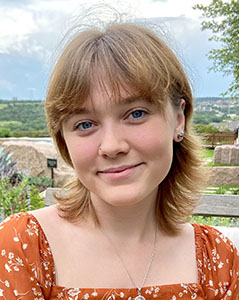Constructing Learning Trajectories: The Impact of Learning Progress on Task Similarity Preference
by Brooke E. Jordan
Faculty Advisor: Jacqueline Woolley, PhD, Graduate Student Mentor: James Daly, MA
Prior research suggests that children are motivated to continue with learning activities when they experience improvements in performance, however it is less clear how these prior experiences entice children to pursue similar activities to further their learning. Research on children’s learning preferences typically explores the impact of progression in learning on task selection as moderated by an additional motivation-based variable (e.g., intrinsic/extrinsic motivation, curiosity). However, there is little evidence on the extent to which task similarities may mediate the connection between learning progress and task preferences. As such, the present study investigated how learning progress and task feature similarities impact future learning preferences in 4- to 6-year-old children. To emulate the experience of learning progress, or a lack thereof, performance was experimentally manipulated such that half of the participants experienced improvements in their performance whereas the other half performed at a consistently high level. I found that there was not a significant difference between the distributions of similar versus novel future task selections between learning progress conditions. Additionally, while participants preferred tasks of character-based similarity over novel tasks across learning progress conditions, they preferred novel tasks more than tasks of procedure-based similarity. Both findings support the notion that task-feature similarity is not a strong motivator of future learning preferences.


